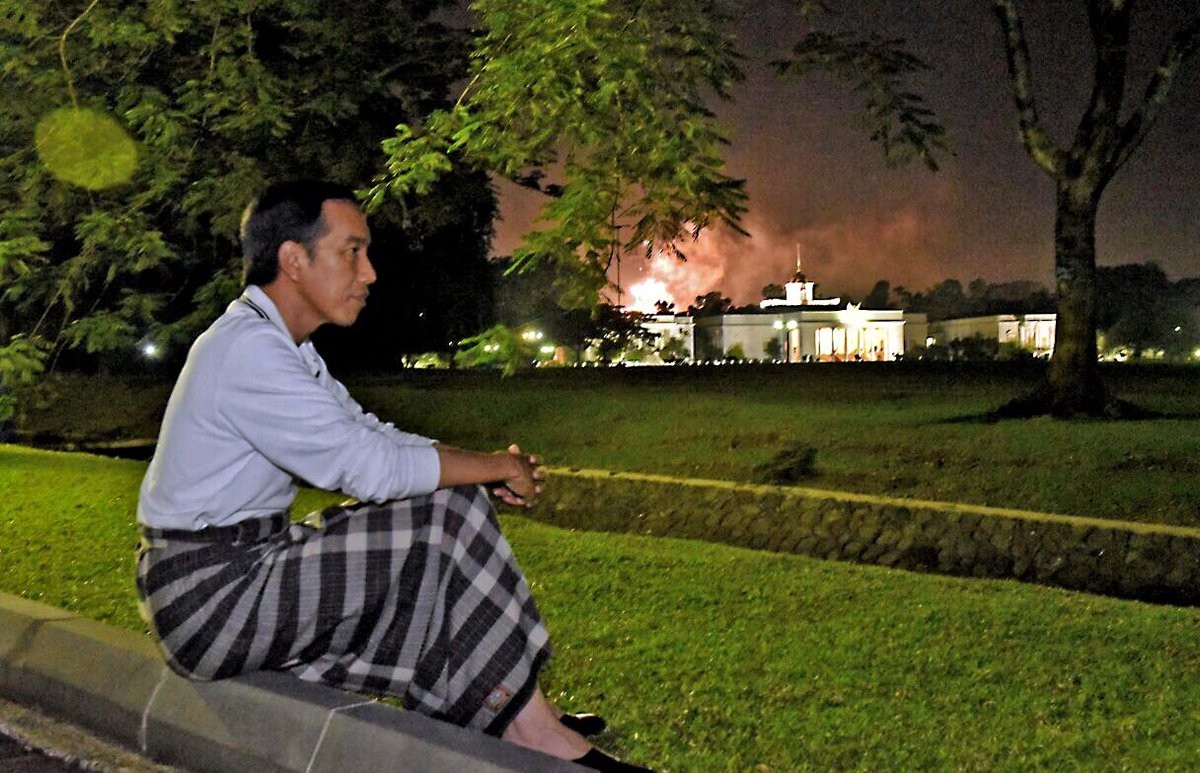Popular Reads
Top Results
Can't find what you're looking for?
View all search resultsPopular Reads
Top Results
Can't find what you're looking for?
View all search resultsCOMMENTARY: High noon for Jokowi's social welfare ambitions
Change text size
Gift Premium Articles
to Anyone
T
o develop social welfare appears to be President Joko “Jokowi” Widodo’s resolution for the new year of 2017. In his first Cabinet meeting this year, Jokowi stressed the importance for his ministers to “work as hard as we can” to narrow the country’s widening inequality.
Indonesia’s rising inequality is especially of concern because of a sharp increase in the Gini coefficient over the past 15 years from 0.33 in 2002 to 0.41 in 2016 — zero means perfect equality and 1 perfect inequality.
Even though the poverty rate declined to 10.7 percent in September 2016 from 18.2 percent in 2002, the emerging middle class phenomenon that has become a boon for businesses is definitely not enjoyed by the lowest income bracket of society, which is the most prone to becoming poorer.
Indonesia’s level of inequality is now considered to be relatively high and climbing faster than most of its East Asian neighbors, according to the World Bank. Between 2003 and 2010, the richest 10 percent of Indonesians saw their spending grow 6 percent per year after adjusting for inflation. For the poorest 40 percent, consumption grew by less than 2 percent per year.
President Jokowi is well aware of all this and has tried to address the issue with game-changing state budget reform that eliminated a multibillion US dollar fuel subsidy a couple of months after he stepped into office, redirecting the funds into job-producing infrastructure projects, as well as social programs.
The former furniture businessman from Central Java introduced cash transfers into the Indonesia Smart Card (KIP) for students’ monthly stipends for school fees, an Indonesia Health Card (KIS) providing free health care services and the Prosperous Family Saving Card (KKS).
Those were on top of the existing social programs that included the National Social Security System (SJSN), which encompasses health, pension and anti-poverty insurance for all Indonesians — a major boost to Indonesia’s welfare state — the full implementation of which is slated for 2019.
Meanwhile, rice subsidies from the 1990s and the conditional cash transfers for the very poor households in the bottom 10 percent of society, called the Family Hope Program (PKH), still existed.
Jokowi’s social welfare narrative has been prominent since his 2014 campaign and most probably will remain so if he seeks reelection two years from now. After all, all parties gain when making social policy commitments, not just those that are leftist or part of a labor movement.
However, now the devil is in the realization of promises. There are three structural stumbling blocks that may hinder social welfare improvement, none of which can be solved overnight, or even during a one five-year term presidency.
First, raising state revenues to boost social spending may be problematic. Indonesia has been struggling to boost its stubbornly low tax ratio, which at about 11 percent of the nation’s gross domestic product (GDP) is among the lowest in the region.
To make matters worse, the government has in past years failed to meet its tax collection target to cover its regular spending, let alone to pay for new posts on social programs. Of course, allocating funds for social programs to help the lowincome in society would not require a hefty amount of funds, but most of our state spending has been on routine expenses, such as civil servant salaries, limiting the room for extra social spending.
Second, Indonesia’s social spending has been very low by international standards and catching up would require a total overhaul of the state budget or supporting regulations.
State spending for social protection reached Rp 150.8 trillion (US$11.31 billion) in 2016, up from only Rp 5.1 trillion in 2012, according to information from the Social Affairs Ministry’s website. This compares with the more than Rp 1 quadrillion the state spent overall each year during this period.
Indonesia’s public social expenditures as a percentage of GDP is among the lowest worldwide at less than 5 percent in 2012, close to India, compared with an average of 22 percent for Organization of Economic Co-operation and Development (OECD) countries.
Data on social spending for Indonesia is limited and may distort this point, but considering the low state budget contributions to GDP, we can expect social spending to also account for a small portion of the overall economy.
Third, the huge human capital gap between regions and cities can slow down efforts to push for social programs in regions.
People coming to Jakarta and Java to make ends meet indicate low work opportunities in the regions. Poverty rates in villages are also much higher than in cities, although inequality is narrower.
Another case in point is the government’s requirement that regional governments allocate 25 percent of their budgets (APBD) for infrastructure spending. Many regions are still finding difficulties meeting the target, saying the concept is too abstract for them to realize.
Bearing in mind such structural problems and the government’s strong will in addressing social welfare, Jokowi’s “work, work, work” and “mental revolution” attitude may shed some light on the social policy breakthroughs that are required to enlarge Indonesia’s welfare state enough to be enjoyed even by the poorest.
After all, it is the government’s duty to protect the poor.










